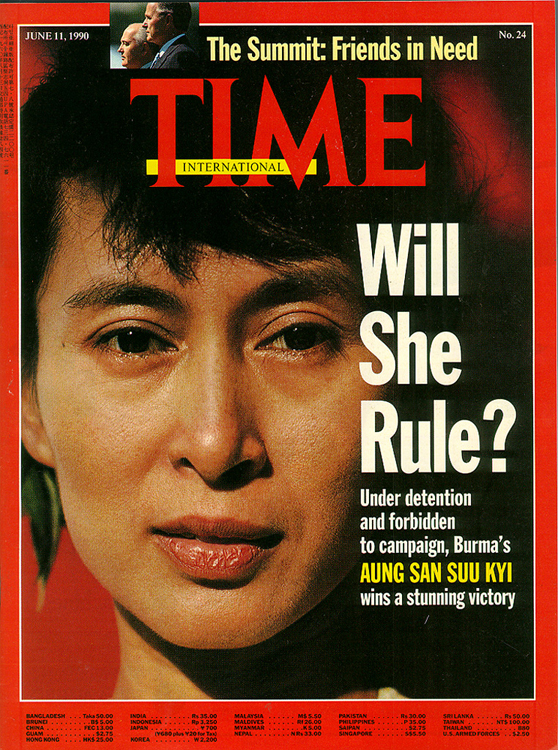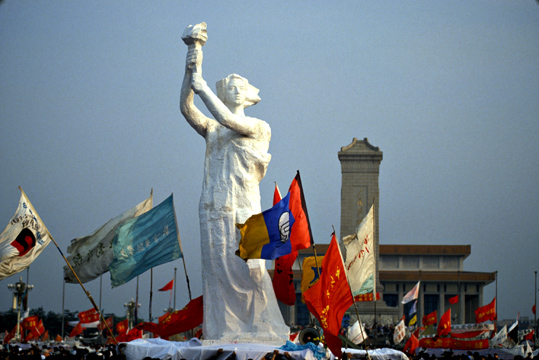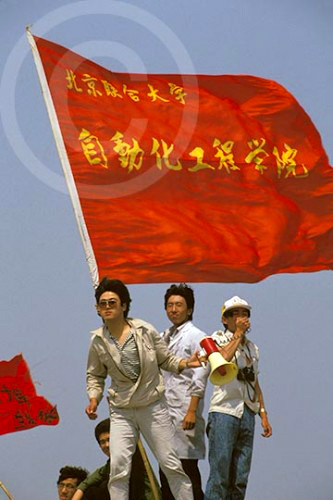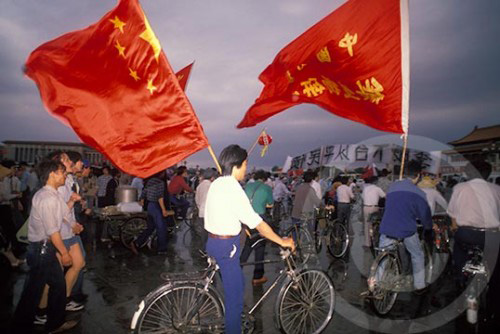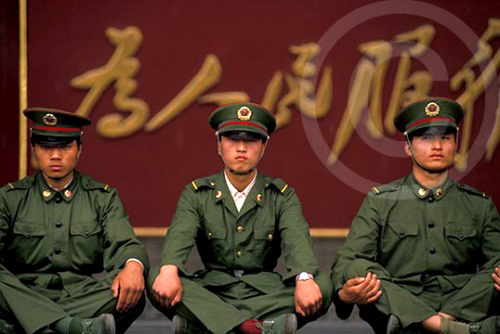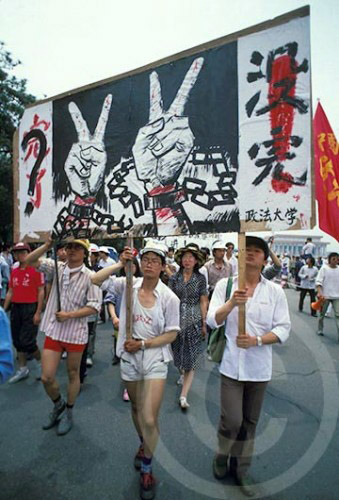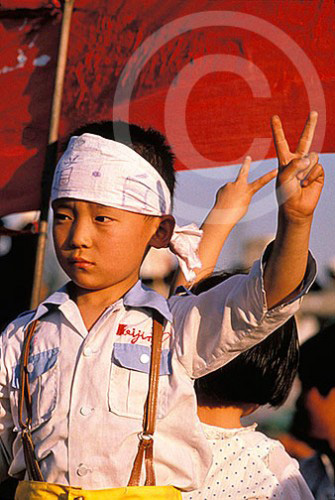Today the Shanghai Stock Exchange fell 64.89 points. This may not seem like dramatic news to most people, but for anybody who remembers June 4, 1989 (6489), this brings chills.
June 4th is the day the Tiananmen Square Massacre took place 23 years ago in Beijing, China; when the Chinese government ordered the People’s Liberation Army to fire upon thousands of unarmed civilians who were peacefully demonstrating during the Democracy Movement.
The Chinese Communist Party has never released a death toll from the crackdown, but estimates range from several hundred to several thousand by witnesses and human rights groups.
June 4th is an extremely sensitive topic in China, and is also one of the most censored. You won’t find mention of it anywhere in Chinese history books. In fact, most people born after 1989 don’t even know it happened.
You can imagine the nervousness of the Communist Party today when the stock exchange closed 64.89 points lower, reminding everyone once again of a date it has been trying to erase from history for the past 23 years. Even more spooky is that the Shanghai Composite Index opened at 2,346.98—as in “Let’s not forget 23 years ago, on 4 June,’89 (only the year’s digits are switched).
It made the Politiburo so paranoid, in fact, that it blocked microbloggers on China’s most popular version of Twitter, censoring anything related to June 4th. Messages containing words like stock exchange, 23, 6/4, remember, tanks, and never forget were blocked.
The Chinese have always been superstitious about numbers. Just flash back to the Beijing Olympics, held on 8/8/08 starting at 8:08 because the number 8 is considered lucky. Some say today’s symbolic ticker numbers were brought on by the Karmic gods. Others speculate the stock exchange was hacked by clever activists. Whatever the case, clearly it was meant for all the world to remember what happened in Tiananmen Square twenty-three years ago and to honor the innocent victims.
As you may remember, my husband, Jeffrey Aaronson, was in the middle of the Democracy Movement when it unfolded in Tiananmen Square. If you missed my post about it and are interested in reading it, you can click on the link below:
My Crash Course in Living Through the Lens
In honor or remembering Tiananmen, I’m also posting a small excerpt from my book in progress, The Art of an Improbable Life: My Twenty Years with an International Photojournalist.
Chapter Ten
Tiananmen’s Shadow
Beijing, China
2000-01
As Zhang Xianling cradles her son’s motorcycle helmet, remembering the last time she saw him alive, tears begin to pool in the corner of her eyes, betraying the iron fortitude she normally wears.
“The bullet entered Wang Nan’s head above his left eye,” Zhang begins as she looks up at Jeffrey, “and exited behind his ear, penetrating the motorcycle helmet he was wearing.”
Jeffrey winces, then feels his stomach tighten as if he’s just been kicked in the gut. Though he’s witnessed much agony in the world as a photojournalist, he’s never hardened to it.
“Nan was a junior in high school,” Zhang continues. “He had gone out to take pictures the night of June 3rd. He was passionate about photography and wanted to capture history.”
Then she stops and closes her eyes. After inhaling a sonorous breath of calm and courage, she continues, “The instant his flash went off, a soldier aimed his gun and shot him through the head.”
The sorrow draped across Zhang Xianling’s face reinforces why Jeffrey has risked so much to be here: This mother’s story deserves to be told. And so do all the others.
Eleven years earlier Jeffrey had been in Tiananmen Square photographing China’s Democracy Movement, capturing the exuberance of students and workers peacefully demonstrating, hoping to bring change to their country. He documented a million people marching with banners and flags, protesters carrying anti-corruption placards and hunger strikers facing off with a government they believed was no longer listening to their demands for a more open society.
Jeffrey had spent an entire month in Beijing that hot spring of 1989, but it wasn’t until now that he was finally able to reveal what had happened on the night of June 3rd, and into the pre-dawn hours of June 4th, when the Chinese government ordered the People’s Liberation Army to quash the Democracy Movement with resounding force. Hundreds, if not thousands, of unarmed Chinese civilians were killed by the PLA as soldiers randomly shot into the crowd fleeing Tiananmen Square and the surrounding areas.
This act, which quickly became known as the June 4th Massacre, or the Tiananmen Massacre, is something the Chinese government has tried to cover up ever since, and something the victim’s families have struggled with as they seek justice and accountability.
Jeffrey hopes his photo project will bring the June 4th Massacre to light again, to show the world what really happened. His story won’t involve graphic images of bodies mowed down by the PLA, but instead, iconic portraits of family members of the victims, and those casualties of the movement who survived, but whose lives have been shattered. Their testimony about the massacre will also accompany the photographs he is creating . . .
more…
Here’s to remembering June 4th and never forgetting those who have been silenced.



